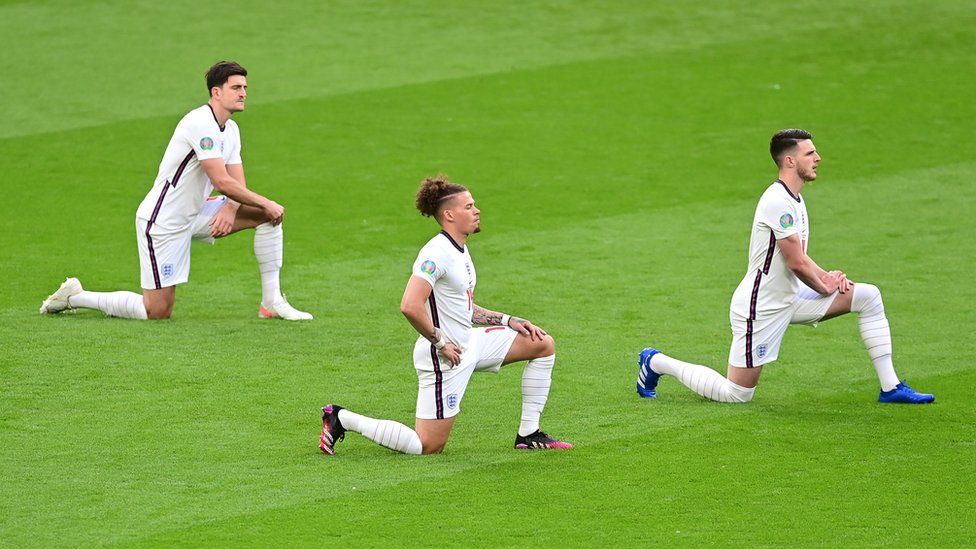
The English Premier League announced on Wednesday that the anti-racism gesture of taking the knee will be limited to certain matches in the 2022/23 season. The decision comes after meetings between the league and top-flight captains who consulted with their respective teams.
What the League has to say?
“The players have decided to use specific moments during the upcoming campaign to take the knee, to amplify the message that racism has no place in football or society,” read a statement from the league.
“The Premier League supports the players’ decision and, alongside the clubs, will use these opportunities to elevate anti-racism messaging as part of the League’s No Room for Racism Action Plan.
“Players will take the knee during the opening match round of the season, dedicated No Room for Racism match rounds in October and March, Boxing Day fixtures following the conclusion of the FIFA World Cup Qatar 2022, Premier League matches on the final day of the season and The FA Cup and EFL Cup Finals.”
What is ‘knee before the match’?
The player-led initiative had been in place before every single match since June 2020. It is a way to show solidarity with the Black Lives Matter Movement following the murder of George Floyd by Minneapolis police which sparked global protests.
The gesture has drawn criticism from some fans and politicians including UK Home Secretary Priti Patel. Recently, she accused the England team of participating in “gesture politics” by taking the knee during their Euro 2020 games. She argued that fans had a right to boo them, telling GB News in June 2021: “That’s a choice for them, quite frankly.”
The English Premier League 2022/23 season kicks off its 30-year anniversary on August, 5 as Arsenal head to Crystal Palace for a London derby.
Players have been doing it to highlight the fight for racial equality
In a statement, Tony Burnett, the CEO of anti-racism group Kick it Out, said: “Taking the knee is a gesture that has been driven by the players. Players have been doing it to highlight the fight for racial equality and for that, it has certainly kept the spotlight on the issues football and wider society still face.”
The purpose of symbols and gestures is to use platforms to highlight to those with power that they need to act. Those gestures and symbols will inevitably change over time.
The point is not the symbols and gestures themselves, but what they represent or signify. He said, “We shouldn’t be talking about whether players kneel. We should be talking about why they kneel. We should be talking about the inequality and discrimination that the gesture highlights.”





